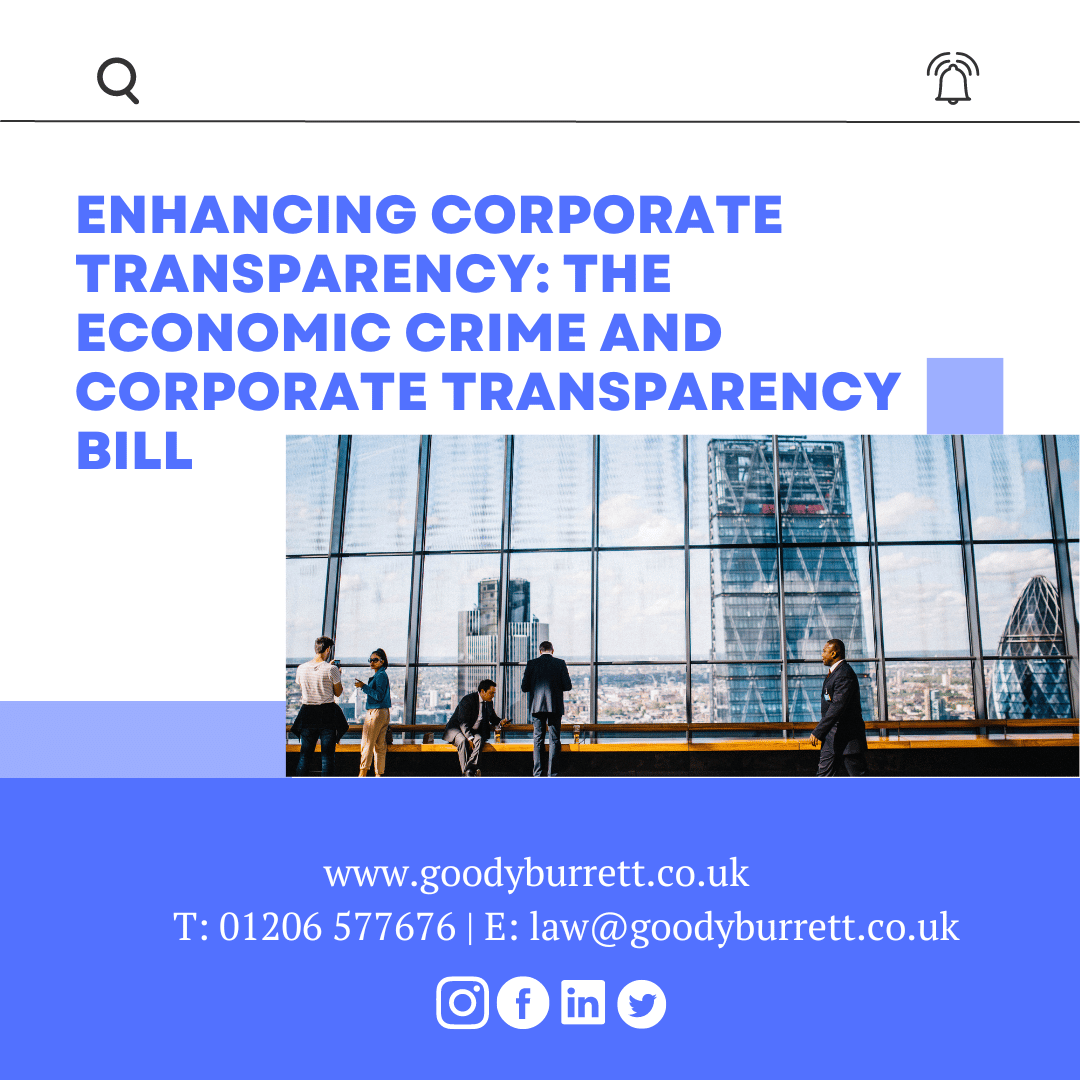Upcoming changes to Companies House
The Economic Crime and Corporate Transparency Bill, which will come into force in due course, is set to make the ownership of small to medium-sized, limited companies more transparent and improve the accuracy of the company register, as well as tackle economic crime. Companies House has been given a budget of £83 million to implement changes so that it can meet this aim.
Following implementation of the Economic Crime and Corporate Transparency Bill, Companies House will be assigned a far more active role in ensuring that the register consists of reliable data regarding companies and their people. As well as this, Companies House must place focus on upholding the integrity of the register to provide better transparency.
Two of the key problems since the scrapping of the old Annual Return following implementation of the Companies Act 2006 are:
- the Confirmation Statement, with its bands of percentage ownership, 25%+ to 50%, 50%+ to 75% and 75%+, serve to obscure the underlying ownership more than clarify it, and in the author’s opinion was a big step backwards; and
- people very often get their Confirmation Statement and PSC filings wrong when declaring what the share ownerships are, something the author has seen frequently. The many PSC forms available also often seem confusing.
For example, shareholdings under 25% are simply not declared, so the public do not know who owns smaller shareholdings. A company with 5 owners who each hold say 20% will not have any PSCs and so the public will be entirely in the dark as to its ownership. The Annual Return stated the complete ownership of all shares in a company and was a superior document that could have simply been built on by a requirement that beneficial ownerships are also declared.
So how is the government correcting these and other errors?
To uphold accuracy and reliability of the register, Companies House will be entrusted to query filings which appear suspicious, even before a company is incorporated. For example, where numerous, repeated applications are made to register a company name but there is already a company with a similar name in the register. If a filing does seem suspicious, Companies House will be able to request further evidence to support the legitimacy of that company or it can reject these applications where justified.
Data sharing will be made available to Companies House, which will enable it to compare the data submitted to it against private and public sectors. These could include law enforcement bodies, government bodies and regulatory bodies. By allowing data-sharing, suspicious filing can be identified more easily, which could lead to a reduction in economic criminal activity.
To further aid the reduction in economic criminal activity, there will be a requirement of identity verification for anyone who sets up, manages or controls a company. This applies to directors, people with significant control (PSCs) and individuals acting on behalf of the company. If identification is not successfully obtained by the end of a set period, this may lead to criminal sanctions, in addition to possible civil penalties.
To increase transparency, companies will need to submit information about their shareholders on a one-off basis to Companies House. However, there will be more extensive rights introduced, so that applications can be made for certain personal information to be suppressed from the public register.
A corporate director will only be retained or appointed following the introduction of the Economic Crime and Corporate Transparency Bill if all directors of their company are individual people who are able to have their identity verified. Therefore, a corporate director cannot itself have a corporate director for their own company. Further, all corporate directors must be UK companies or registered entities – overseas corporate directors will not suffice.
Electronic filing will be implemented using the system iXBRL. Key information, including company accounts, will be easily identifiable, as information will be fully tagged. Small and micro companies must file a full balance sheet, alongside a profit and loss account. Small companies will also need to file a directors’ report with their accounts.
A new register will be created which will contain information regarding overseas entities. The aim is that it will include better information about beneficial owners and necessitate overseas entities to register if they own land. Should there be non-compliance, criminal penalties will follow.
Hopefully, the Economic Crime and Corporate Transparency Bill will transform Companies House, ensuring that that fraudulent activity is more easily identifiable, to allow the register to be as transparent, reliable and accurate as possible.
If you’d like to know more about how this may affect you and your business, please don’t hesitate to contact our commercial solicitor, David Cammack. Please call 07909 564799 or e-mail [email protected].
For more information
Contact us on 01206 577676 or you can email [email protected]

